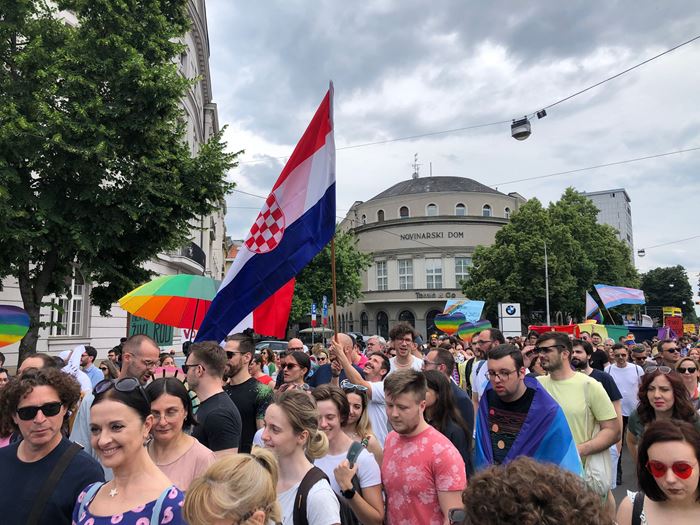December 15, 2023 – As part of the European project “CareFor”, which is carried out by the associations Legebitra from Slovenia and Dugine obitelji (Rainbow Families) from Croatia, the Valicon agency surveyed the attitude of citizens towards LGBTIQ families in Croatia.
As 24Sata writes, more than half of the respondents have a positive attitude towards “rainbow families” and support the introduction of LGBTIQ topics into curricula and schools, and over 70 percent of them would not have a problem with their colleague at work being an LGBTIQ person – as demonstrated by Valicon’s public opinion survey as part of the European project “CareFor”, which is implemented by the associations Legebitra from Slovenia and Dugine obitelji from Croatia. On a representative sample of 1,011 respondents aged 15 to 75, the research was conducted to analyze citizens’ attitudes towards “rainbow families” – in Croatian media, this term is often used to describe a lesbian or gay couple with children. In a broader sense, it can describe a family where at least one parent is transgender, intersex, lesbian, gay, bisexual or queer.
The majority of participants (64%) on a scale of 1 to 5 expressed a moderate/neutral to an extremely positive attitude towards “rainbow families”, while 36 percent expressed a negative attitude. The main reasons for a positive attitude include openness and tolerance such as: “They don’t bother me, I have no prejudice” and “Everyone has the right to live their own life.” On the other hand, the negative attitude is often based on traditional understandings of the family: “A family is made of a father, mother and child” and “It is not normal, or natural.”
Acceptance of LGBT Families in Croatian Society
The research results reveal a high degree of social acceptance of “rainbow families” in Croatian society. 60 percent of respondents expressed moderate to strong support for the availability of literature on rainbow families in public libraries, while 55 percent expressed the same level of support for the inclusion of LGBTIQ topics in school curricula.
Respondents also expressed their views on specific issues related to the family life of LGBTIQ people, with 59 percent expressing moderate to strong support for the adoption of a child by same-sex couples. Equal support for access to medically assisted reproduction for women in same-sex relationships was at 67 percent, while moderate to strong support for same-sex marriage exceeded 50 percent for both female and male couples.
Among the surprising findings of the research is that 29 percent of respondents know for sure that they have at least one LGBTIQ person among their friends and acquaintances, while 32 percent of them believe that such persons are part of their social circle. Additionally, 71 percent of respondents state that they would have no problem with LGBTIQ colleagues at work, and over 70 percent have no problem with colleagues at work having a partner of the same sex.
“These encouraging results testify to the change in the social climate and the increasing inclusivity towards diversity. The reality that the research shows, especially that experienced by young people in Croatia, encourages us. The ever-earlier coming out of the ‘closet’ by LGBTIQ youth and their sharing of personal stories on social networks certainly contribute to a positive shift”, president of Dugine Obitelji Association Daniel Martinović commented on the results of the research. “LGBTIQ people in Croatia, who have been talking more and more openly about their lives for the past ten years, also play a big role in such positive results”, he notes.










